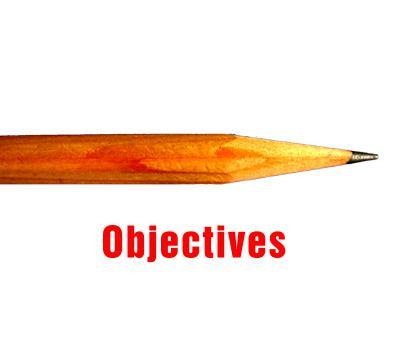
When you attempt to set and establish your learning objectives, especially for language learning, try to narrow things down and set clear achievable targets.
This post is aimed specifically for language learning, but is just as applicable to any form of learning.
If you need to, ask yourself questions and imagine that you are the questionner.
For example, if we think about our objectives we could set out a number of ‘Wh’ questions to ensure that the objective becomes clearer, more acheivable and free from ambiguity :
1. To be fluent in the target language in my job
What is your job ?
When do you use the target language ?
Where do you speak the target language ?
Why do you need to speak the target language ?
Who are the people you speak the target language to ? ( native speakers or foreigners speaking a common business language)
How often do you speak the target language ?
Is it always you ?
How do you speak the target language ? (by phone, face-to-face, video conference, in a meeting etc.)
How many people do you need to speak the target language to at any one time ?
What difficulties do you experience at the moment in the target language ?
What is the impact of these problems on You ? / on your business ?
What is fluent for you ?
How will fluent feel / look for you ?
What differences will being fluent mean for you ?
What will the benefits of being fluent bring to you / your company ?
What will the risks of you not being fluent mean ?
Are you willing to invest time in your learning process ?
How much time are you willing to invest ?
Are you willing and able to plan training sessions around work ?
Is your manager supporting your learning ?
Why / why not ?
Is your training urgent ?
Is your training a business priority ?
What will happen if you don’t become fluent ?
Priorities, Priorities
You should define priority objectives ; you will experience times when it is difficult to achieve what you have decided to do. You need to sort through and decide which is the most important by order. Do not leave things systematically up in the air, rather you should seek and find the priorities in your work and set time aside to do them. This is especially important for things that never appear at the top of your list of priorities.
Find the ideal time for this type of task during the time you have allotted for Self-Managed Learning. This could be the morning or the evening, you need to find your own « Prime Time » where you are the most awake, receptive and productive.
People learn specific skills easier at certain ages than at others.
Children can be experts at Rollerblading after an hour, but grandfathers probably need a little longer. These prime times for learning are also called windows of opportunity.
These are times when the brain is most ready to learn something new. It’s as if a window in the brain opens for a while, making it easier to learn certain new skills or gain new knowledge. Then the window closes. When it’s closed, we still learn, but it’s harder.
It is virtually impossible to achieve an objective without planning and prioritising it beforehand and then giving the necessary time to be able to achieve it.
One solution is to set aside between ½ and 1 hour per day for language learning – we get nothing for nothing and learning by proxy doesn’t exist (yet) !
Some people put a day aside, usually at the weekend, for learning – which may work for when we need to revise and swot up for an exam, but not for the long haul learning.
This model doesn’t really work effectively for language learning where regular exposure to the sounds / speaking / reading and writing is absolutely necessary in order to progress.
It is much more effective and efficace to set aside time EACH & EVERY day for learning, for many reasons :
- We are talking about acquiring an ability to undertake a skill, much like playing the piano where regular practice is a must. We are not talking about absorbing a body of information and unchangeable laws to be regurgitated later, such as maths . A more gradual and long-term approach is needed that is very suited to experiential learning in languages, which is easier to achieve, less boring and avoids overload if well managed.
- Being exposed regularly to situations where the language is used / spoken etc. helps memorisation and retention.
Time is needed to transfer knowledge and concepts from short to long-term memory – it does not happen by osmosis.
Clearly set objectives require process time – the time we rarely spend to take a step back and really plan what we are going to do and how we intend to accomplish it.
The short-and-sweet of it is that if you fail to plan, you plan to fail.
© 2011, ©Active Consultants 2011. All rights reserved. Copying in part or in entirety only permitted by written consent

Original content here is published under these license terms: X
License Type:Commercial
License Summary:You may read the original content in the context in which it is published (at this web address). You may make other uses of the content only with the written permission of the author on payment of a fee.

